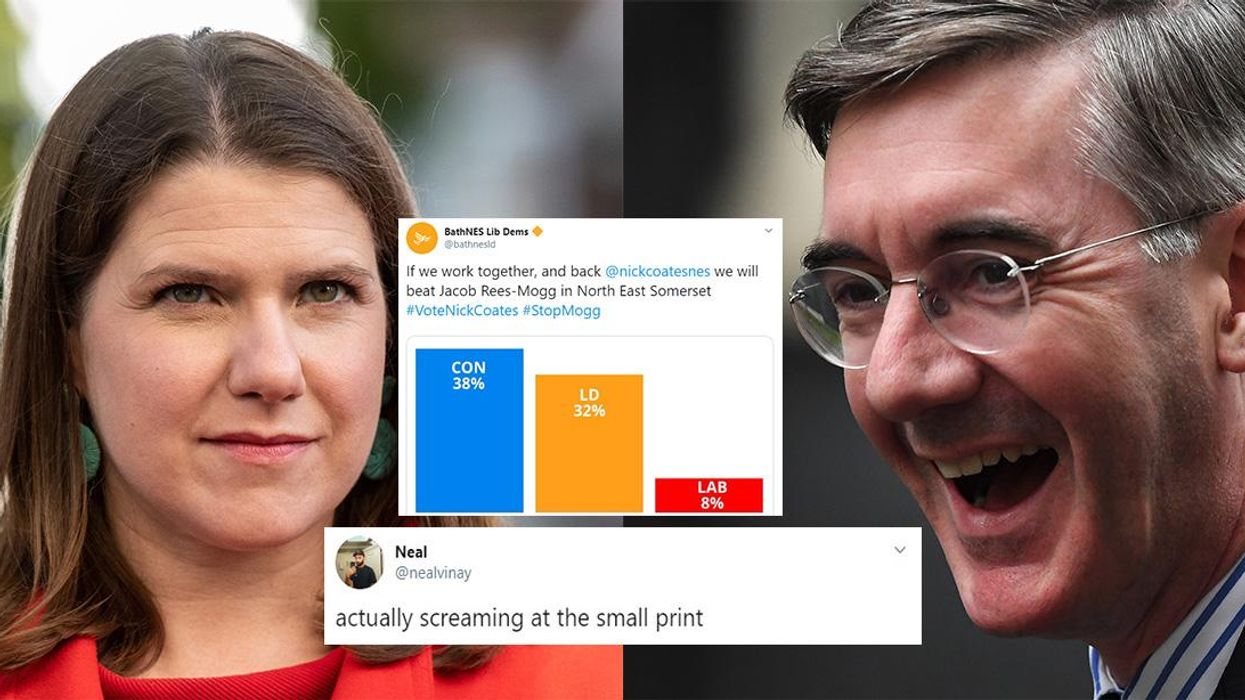A very dubious Liberal Democrat poll has shown why you should always read the small print.
As part of their general election campaign, the Lib Dems have been asking Survation to produce polling data for some of the constituencies they are targeting.
The aim is presumably to convince voters that they should tactically vote for Lib Dem candidates if they want to beat the Conservatives.
One of those constituencies is North East Somerset – a seat currently held by leading Brexiteer, Victorian cosplayer Jacob Rees-Mogg and Conservative MP for North East Somerset – and the poll Survation made produced a surprising result...
If you look at that, it certainly seems like the Lib Dems have a decent shot of defeating Rees-Mogg.
It also shows an incredible change of fortune for the party – as in 2017, they were in distant third-place with only 8 per cent of the vote.
But if you read the small print, the result begins to make a bit more sense…
That’s because Survation didn’t ask a straightforward “Who would you vote for…” question – they gave respondents this question instead:
Imagine that the result in your constituency was expected to be very close between the Conservative and Liberal Democrat candidate, and none of the other parties were competitive. In this scenario, which party would you vote for?
So in short, the Lib Dems set up a poll with an incredibly leading question in their favour and they were still six percentage points behind the Conservatives.
Although to be fair, Survation did produce a standard question as well – which showed them in a more distant second place.
But that isn’t going to stop people dragging the Lib Dems for celebrating their misleading poll.
And as a few people pointed out, it’s amazing that the Lib Dems are celebrating a poll which shows them losing in the most favourable circumstances.
Of course, anyone who has followed the Liberal Democrats in recent elections will know that misleading graphs are a classic part of their election strategy…
More: Jo Swinson dismantles Boris Johnson in just one minute














